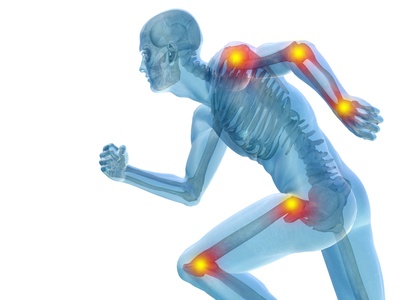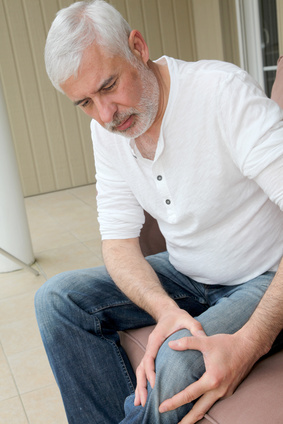
by Dr. Parang Mehta

Chronic (long-lasting) pain is a widespread affliction of humanity. Estimates state that about 50 million people in the USA alone live with constant pain and are incapacitated partially or fully.
Pain is not apparent; you may have constant pain, but people around you may not understand the extent of your suffering. You’re often alone with your agony.
Dealing with chronic pain, overcoming it, and preventing it from wrecking your life is often a lonely odyssey.
What is Chronic Pain?
There isn’t a universally accepted definition. In general, pain that persists much longer than the expected recovery time for an injury or illness is considered chronic pain.
Different experts have suggested cutoffs of three or six months as a definition for chronic pain.
Causes of Longstanding Pain
- Physical injuries, burns, etc
- Neuropathic pain: An affection of the nerves, as happens in diabetes and after herpes
- Inflammation, as in diseases like rheumatoid arthritis and infections
- Bone and muscle pain
- Mechanical pain, as caused by a growing tumor
- Psychogenic pain, caused by emotional, behavioral, or psychological reasons
- Specific disease, like migraine
The cause of pain is often obvious, but not always. The effects of an injury or the swelling and restricted movement of a joint are easy to diagnose. Sometimes, the cause of pain is not so obvious, and even a lengthy investigation will not reveal it.
Adverse Effects of Chronic Pain
- Disability. Pain, especially if severe, restricts the ability to be productive
- Poor sleep and fatigue
- Depression or anxiety
- Reduced libido
- Drug overuse, especially opioids
- Alcohol dependence
- Loss of employment
- Suicidal ideas
It’s a known fact that almost two-thirds of people with chronic pain have disturbed mental health also. Whenever you’re making a management plan, be sure to include a mental health expert.
Counseling, attitude adjustment, and psychological support will be of immense benefit, in addition to the treatment of the physical disorder.
Drugs for Pain
Drugs are often used for pain relief and are generally safe for a few days. Long-term use carries the dangers of dependence, addiction, organ damage, and other adverse effects.
Among the drugs used for chronic pain are nonopioid analgesics, opioid analgesics, antiepileptic drugs (pregabalin and gabapentin), muscle relaxants, and antidepressants. Ointments and sprays relieve localized pain.
Using any drug for a long time should only be done under the guidance of your doctor. In general, try the less toxic drugs first. Avoid the drugs with addiction potential, like opioids. If you do need them, reduce the dose as early as possible. Your target should be to stop entirely.
Non-Pharmacological Management
Relief of pain by methods not involving the use of drugs is valuable. Even though you may not get complete relief, your pain may be made tolerable. At the least, you will be able to reduce your requirement for drugs. For these reasons, exploring the options is worthwhile.
- Relaxation therapy
- Biofeedback
- Acupuncture
- Cognitive behavioral therapy
- Chiropractic
- Electrical stimulation (Transcutaneous electrical nerve stimulation, TENS)
- Ultrasound stimulation
- Exercise and physical therapy
- Group support and counseling
- Heat and cold therapy.
There are several others, depending on the site and type of pain.
Though you’re not using drugs, it is best to enlist an experienced practitioner to guide you. These therapies also need skill and expertise.
Do-It-Yourself Measures
Living with pain and overcoming it is often a solitary journey. How far you travel will depend on how much you can do for yourself. Some suggestions:
Take care of yourself. Eat a healthy diet, have a regular lifestyle, and get adequate sleep. Keep to an exercise schedule, within the limits imposed by your pain. Keeping your body in good condition certainly helps you prevail over pain.
Accept the reality. Not all disease and pain can be cured; some must be endured. It takes some effort to convince yourself that this is something you have to live with and overcome.
Continue living. Don’t withdraw entirely from life because of pain or disability. Try your hardest to perform most of your own self-care, and also some work-related tasks every day. It will need considerable determination initially, but will get easier as you make a habit of it.
Focus on abilities. It’s all too easy to feel disabled and helpless. Concentrate on what you can do, and try to expand those frontiers. Focus on amplifying your abilities. Thinking constantly about pain and disability is an ever-spiraling path to self-pity and depression.
Living Well With Your Pain
Most painful conditions last only a few days or weeks. If you are unfortunate enough to have long lasting pain, make an effort to adapt yourself to get along better with the world and the people around you.
Behave well. Constant severe pain does affect mood. It may feel normal to be irritable and angry, but the whole world is not responsible for your suffering. You shouldn’t expect everyone to put up with your snapping, bitterness, and quarreling.
Have realistic expectations of other people. With a recent accident, people will wait on you and serve you. As time goes on, you should take on your own self-care, and not expect too much from people around you.
Show appreciation. Friends and family that know of your suffering will help you. Express your gratitude clearly. Each and every time.
Control your complaining. Severe and constant pain can take over your life, but don’t let it take over your conversation.
Your friends and relatives know about your illness and the pain you’re going through. Speaking about it incessantly is not a good idea. No one wants to meet and spend time with a person who talks only about sickness and pain.
Join a support group. Chronic pain is common, and there are groups where members support each other. Find one locally or online and join.
This is where you can talk freely about your pain and other symptoms, and their effect on your life. You will meet people suffering similarly, and get advice and inspiration about coping and getting on with life.
Avoid non-prescription drugs. People who know your suffering will try to help you by advising various remedies. Over-the-counter pills and mysterious medicines without labels can be dangerous. Just say no.
Beware of using food as a painkiller. Food distracts, especially desserts and fried foods. The relief lasts only as long as you’re actually eating, and putting on weight will usually worsen your pain.
Be optimistic. The body has marvelous abilities of healing itself, and a cheerful attitude helps enormously. Believe that you’re going to get better, and it’s more likely to happen.
Set goals, one step at a time. Small steps are easier to attain and will cheer you up. Set targets about mobility, the duration you’re able to sit and work, and overcoming the pain of routine activities. Try to achieve more every day than the day before.
Get on with life. Whatever your life path and career plan was before your accident or sickness, move forward with it.
Don’t let your existence be all about the pain. You may have to revise or reschedule your targets, but never stop advancing towards them.
Chronic pain is a terrible affliction. Spending every waking moment in pain, and inability to sleep because of it, is unimaginable to people who have not been through it.
The diagnosis and treatment options are much safer and varied today, and you should take full advantage of them. If you do have to live with pain, make sure it doesn’t take over and destroy your career, life, and relationships.

(Dr. Parang Mehta writes about medicine and health for magazines, journals, and websites. He advises people not to look in the drugstore for solutions to every health problem. He also owns a website about children’s health, Mehta Childcare.)



